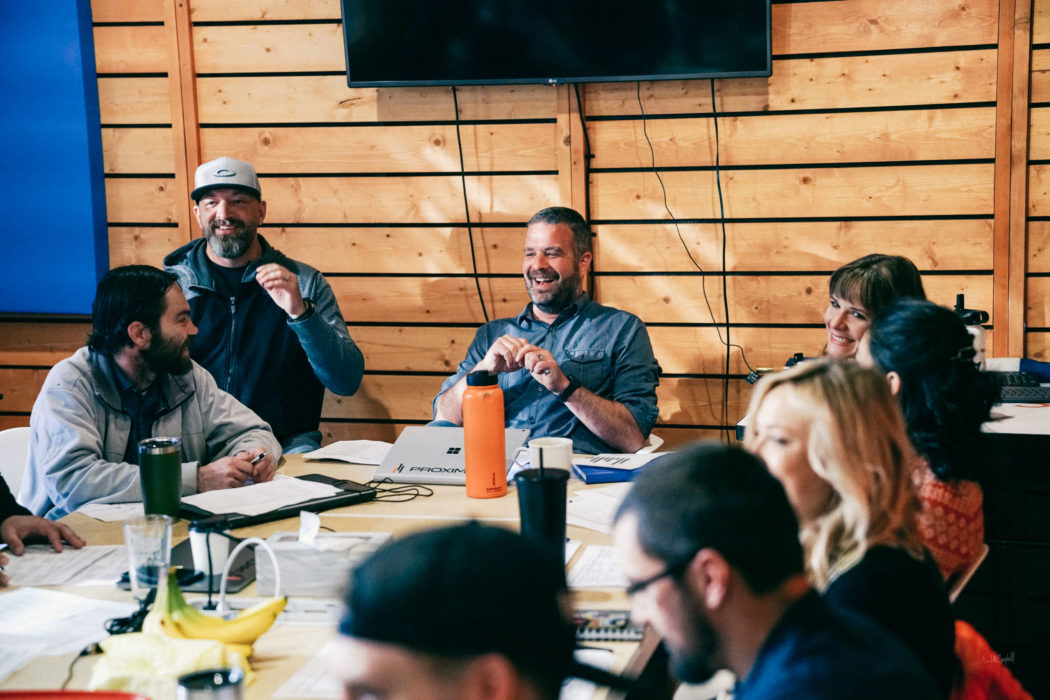The Rural Edge: Proximity is (remotely) bringing people together
Today, Proximity has 380 active locations in their system, and more than 700 in the pipeline. They run the only all-inclusive software for running coworking spaces, and are making a huge difference in helping the spaces run properly.
Josh Freed didn’t always plan to lead a software company for coworking spaces with one of the largest networks in the country. In fact, the whole idea came about after he started a marketing company in Montrose, Colorado, and needed to open up a coworking space to attract new talent into the company.
“Throughout the process of opening and collaborating with a coworking space in a nearby town, I realized there was a bigger trend happening in rural communities,” said Freed. “There were entrepreneurs and freelancers in other mountain towns looking for a network and a place to build their businesses. I felt these communities had an incredible opportunity to attract more talent and support new business growth.”
So, he and six partners got to work building the software and hardware infrastructure to support these coworking spaces, and Proximity was born.
Today, Proximity has 380 active locations in their system, and more than 700 in the pipeline. They run the only all-inclusive software for running coworking spaces, and are making a huge difference in helping the spaces run properly and grow their customer and member base. They’re also a CORI Innovation Fund portfolio company.
And while Proximity now has a national reach, they never lost their rural roots.
Founded in Montrose, a community of about 19,000, about 65% of the spaces in Proximity’s network are rural. Freed shared that early on, when Proximity was still creating its software infrastructure they, “started with rural spaces because we had friendly relationships with them, and they were located nearby and trusted us, even as we were building on the fly.”
The “I know a guy” network was really what drove a lot of the early business. Now, Proximity is running the software for 150,000 square foot spaces, and for major companies like Office Depot.
With the resources they’ve developed from working with small rural and major urban spaces alike, Freed knows that Proximity can “take the best in technology and hardware and make it accessible to rural coworking spaces” that might not otherwise have access. It’s a perfect story of how tech and networks can bring rural solutions to scale.
A rural success story
The company itself is a shining example of what successful rural entrepreneurship can look like.
According to Freed, getting their start in Montrose didn’t come without challenges. There simply aren’t as many investors in Montrose as there are in New York and San Francisco (and not as many direct flights). But being in Montrose gave Proximity the immeasurable benefit of “autonomy, to chart their own path and not be stuck under the startup microscope too early.”
Freed shared that being in a rural place also lets you tap into hidden talent because in a place like Montrose, there isn’t an established market dictating to everyone where to work. We see that diversity of talent in that both Proximity’s lead coder and COO are women, positions that too often in the tech industry are dominated by men. And with costs of living lower in Montrose than an urban hub, Proximity has lower expenses, meaning more available cash to spend on development and growth.
To top it off, the kind of close, local connections Proximity forged being a rural startup means that they and their investors can really see the results of their investment, watching the Montrose community they care about changing before their eyes.
Coworking during COVID
The COVID-19 crisis has also had a major impact on Proximity and the network of coworking spaces they help to manage. Coworking spaces are often built on a simple idea that COVID has upended: people sharing space and collaborating for work.
Social distancing requirements rendered that vision temporarily impossible, leaving coworking spaces without a clear path forward. And with the financial toll COVID has taken, even spaces suited for social distancing faced challenges, as many people simply did not have the money or the work to participate.
At CORI we’ve seen examples of innovative success stories and rural spaces planning to make it work, but the headwinds they faced were still steep.
Throughout the process of opening and collaborating with a coworking space in a nearby town, I realized there was a bigger trend happening in rural communities.
Josh Freed, Proximity
Freed saw these effects in real time. As the pandemic spread and restrictions came into place, Freed recalls that Proximity “could see the impact across the entire network, watching revenue and attendance drop off a cliff.”
Before the pandemic, Freed was seeing data from spaces showing thousands of people coming and going in a day. After the pandemic, for many spaces that number shot down to zero.
But at the same time, COVID-19 has inspired a revolution in remote work, causing workers to rethink where they want to live for their careers — a trend which rural coworking can play a major role in. Freed has seen a massive increase in interest in “on demand” spaces, that companies and employees can use how they need it, when they need, for however long they need it.
And the massive shift to remote work is also increasing demand for coworking, as people are trying to strike the balance between the benefits of working in an office and from home.
A happy balance
For Proximity, they’ve seen spaces take the time without members to upgrade their software and infrastructure, which can pay off when the country starts safely re-opening. Companies, more so than people, have long been the barrier to remote work, but with companies now starting to dive in, there’s an incredible opportunity in rural communities across the country. Rural coworking can provide a “happy balance between the main categories of working at home and at headquarters.”
For those communities that are operating or thinking of starting coworking spaces, Proximity can be a significant help. Freed tells us the that Proximity “has invested heavily in Proximity Connect,” a network with more than 2,000 members that provides events resources to support spaces in all stages of development.
From design services, membership pricing models, business advice, community management tips, and even furniture connections, Proximity Connect is bringing rural coworking leaders together to support each other. At one point, we even had hundreds of spaces on in one call together, working through their challenges collaboratively.”
That’s the future of rural innovation.
Stay connected
At CORI, we are interested in broadening the conversation about rural America and sharing stories from local change agents and entrepreneurs who are driving innovation in the small towns and communities they call home. Our Rural Edge series features conversations with the people who are changing the narrative about what’s possible in rural America.
To learn more about our work and about inspiring rural innovators like Josh Freed, sign up for our newsletter.

